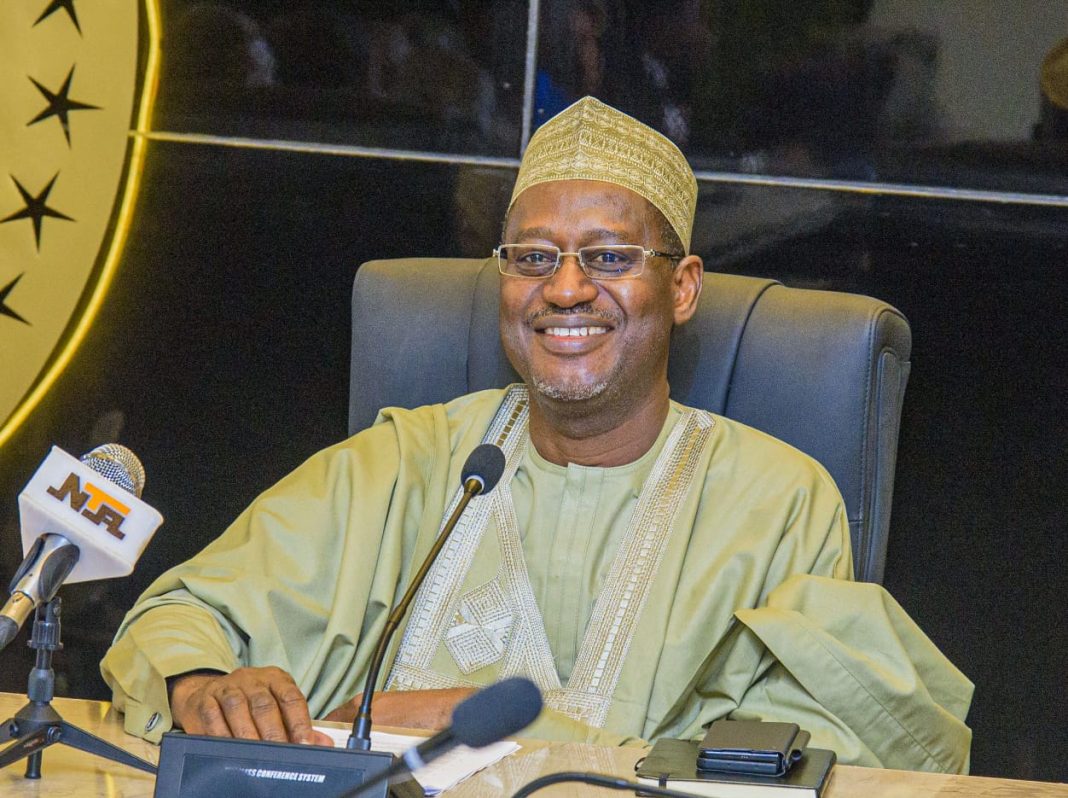The Federal Government has announced plans to create a National Land Commission to address the issue of ineffective land administration in Nigeria, which is estimated to result in a loss of 300 billion dollars in revenue.
This announcement was made on Wednesday by the Minister of Housing and Urban Development, Ahmed Dangiwa, during the opening of a two-day 28th Conference of Directors of Lands in the Federal and State Ministries, Departments, and Agencies in Lagos.
Mr Dangiwa said a National Land Commission would provide the necessary framework, guidelines, and regulations to fix the gap and chart a new way forward for effective land administration in Nigeria.
“Currently, I think we have over 300 billion dollars dead capital in land assets that must be unlocked through effective land administration.
“But today if we have a proper land administration, we are going to unlock nothing less than 300 billion dollars as investments into the coffers of this country,” he said.
Mr Dangiwa explained that the proposed National Land Commission was part of a broad housing sector reform, which would improve land titling and boost Nigeria’s ranking on the World Bank Ease of Doing Business rating.
He added that Nigeria currently ranked 186 out of 190 countries.
“Mr president has a bold vision for the sector and is committed to backing it up with the necessary political will to break down all barriers to unlock the revenue-earning potential of land.
“As the Minister of Housing and Urban Development, we have taken Mr President’s vision and are running with it.
“Our aim is to implement the most historic land reforms the country has ever witnessed to make it easier, safer, and more profitable for the private sector to invest in the sector and make good returns,” he said.
According to him, a notable part of the country’s broad housing sector reforms includes the implementation of comprehensive land reforms toward streamlining land administration and ensuring easy, cost-effective, and efficient access to land.
“Currently, we have a situation where the Land Use Act was enacted in 1978 but there was no complementary institution set up alongside it to provide the necessary framework, guidelines, and regulations for operationalising it.
“We are working to establish a National Land Commission that would fix this gap and chart a new way forward for effective land administration in the country.
“This will improve land titling and boost Nigeria’s ranking on the World Bank Ease of Doing Business where we currently rank 186th out of 190 countries in terms of ease of registering properties,” he said.
The Minister said another reform was a nationwide adoption of the Model Mortgage Foreclosure Law, a housing industry stakeholder initiative and part of the Renewed Hope Agenda of President Bola Tinubu.
He commended efforts of the Lagos State government in digitising its operations, while also commending Kaduna, and Kano states for implementing reforms, urging other states to emulate them.
“We must think out of the box, innovate and learn to do things differently. That will help us make progress and change the narrative going forward,” he said.
Governor Babajide Sanwo-Olu of Lagos said his administration had provided over 3,000 homes, while efforts were still in progress to reduce the housing deficit of 17 million.
Mr Sanwo-Olu, represented by his Special Adviser on Housing, Barakat Odunuga-Bakare, called for the support of all stakeholders through compliance with existing laws for sustainable housing sector.
“It is pertinent to address the housing gap in the state with credence to the burning national issues. The growing housing deficit in Nigeria has risen from seven million in 1991 to an estimated 28 million in 2023.
“Out of this figure, Lagos stood at 17 million deficits with an estimated 500,000 people migrating into Lagos annually. This calls for the provision of mass housing schemes by the State Government as well as other supporting public infrastructure,” he said.
The Director and Head, Lands and Housing Development Department in the Federal Ministry of Housing and Urban Development, Felix Appah, pointed out that land was a vital national asset.
Appah added that land had great economic potential for revenue generation, which entailed evolving processes that increased the speed and convenience of registering property transactions, geared towards greater efficiency.
The 2023 Conference, which had the theme, “Improving Land-Based Revenue of the Federating Units in Nigeria through Efficient and Effective Land Administration,” had directors of Lands in the Federal and State Ministries, Departments, and Agencies in attendance.
Source: Daily Nigerian
































